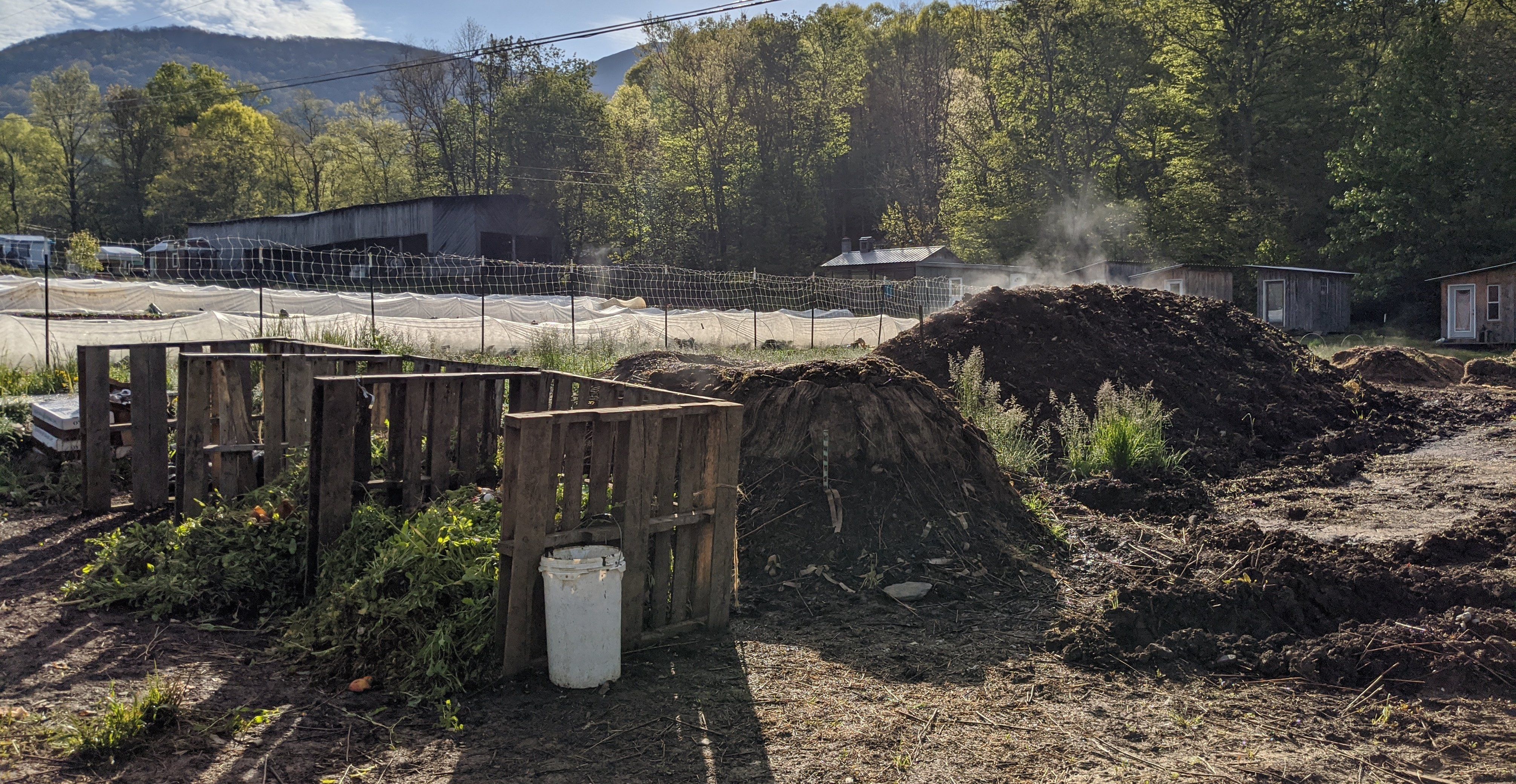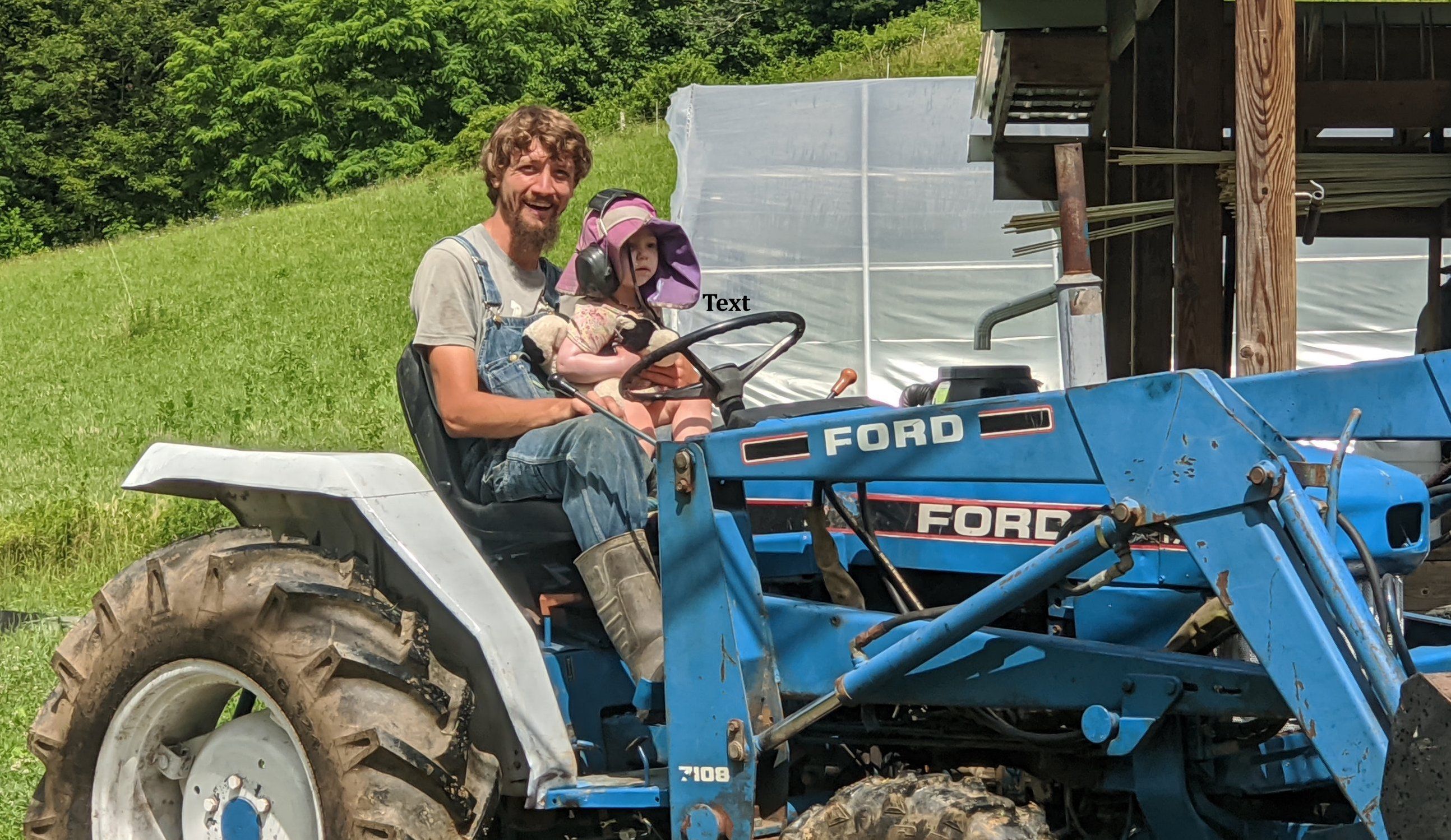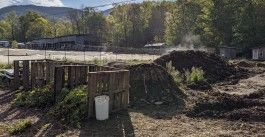Welcome to the Against the Grain Farm Stand where you can pre-order for pick up at either Watauga Country Farmer's Market or at the farm for Saturday, August 29th. If you're reading this in an email, you'll see the items that we have to offer this week below. You can simply click on the yellow button "purchase from the farmstand" to reserve a box, make swaps and add extras to the base box that Harvie will put together for you. If you're reading this in the Harvie platform, navigate over to the "farm stand" to reserve your box.
The ordering period for Saturday pick-up closes at 8pm on Thursday, August 27th.
If you have any questions about your box or the farm stand process, please reach out to Holly directly by email at atgfarm@gmail.com or by phone at 828-406-4439. If you are having any difficulties placing your order or would like to confirm the contents of your box, please do not hesitate to reach out to Holly.
This week's newsletter contribution about the farm's compost comes from M Mueller...
Fertility on Against the Grain comes from many sources. Foremost among these is the underlying geology, the basic stuff Mother Earth gave us humans for a gift. The bedrock gives the farm its basic character—Appalachian granite yields “sweet,” soil, meaning it possesses low pH (high acidity). The clay content, constructed as it is of molecules freely bonding with and releasing from compounds in the soil, affects the chemical processes occurring there. The previous history of our farm culminated in tobacco and hay production, which affected the soil in its own way.
With the coming of ATG onto the land, organic and Biodynamic processes began directing life in the soil, organizing it primarily through the compost which is made on the farm. Every farm draws on different materials to make its compost piles, and our suite of ingredients come from a variety of sources that reads like a list of friends. From Horse Helpers we have received countless loads of carbon-rich stable bedding laced with valuable horse manure; spent grains and kitchen scraps (many of which derive from ATG-grown produce) arrive from Lost Province Brewing Company; flowers used in distilling are on offer from New River Distilling Co., and Juice Boone produces perfectly pulped organic content from their juicing machine.
With the arrival of Highland cattle on the farm this spring, the manure content already being donated by our goats received a big boost. The precious manure from bovine stomachs is perfectly suited to break down the complex cellulose that provides most of the carbon so important for life. And we are continually seeking new sources of organic matter to be incorporated into our piles in proportions that will assure a swift breakdown and clean final product. But what happens once these materials are assembled?
Thanks to the Biodynamic preparations (small-batch, specific composts/ferments made from yarrow, chamomile, nettle, dandelion, oak bark and valerian) inserted into our piles, they are able to organize the life in the decaying vegetable matter to attune to the special needs of our agriculture: the needs for living things to have an abundant spectrum of readily available nutrients in a constant stream of life cycles of living organisms, from the tiniest yeasts, fungi, bacteria, etc, to the (relatively) massive earth worms which put the finishing touches on the rich, black moist piles.
I am the current compost maker for the farm, and the teeming piles seem alive to me. I watch their life cycle with great interest, from a careful laying of the ingredients, to when they “ignite” with life and warmth. Then, soaring temperatures reaching into the mid-140 degrees Fahrenheit range indicate their birth and are carefully recorded; the stasis of high activity around 130 degrees marks their middle age which lasts through turning the piles; and a cooling down and presence of earthworms shows the wisdom of age now distilled into a mass of beautiful, sweet-smelling earth. It is even possible to develop some affection for these piles, and when they are spread onto the fields, it is a real celebration for me, as it is for the many, many soil organisms which welcome their presence and nurse the roots of our field crops which in turn express their joy with the brightest colors and flavors.
As you enjoy your vegetables this week, consider how you might use their precious tailings and table scraps as compost for your own plants and gardens—bringing a bit of Against the Grain into your soil, too! Instructions are available online, or shoot us an email for more information.
Much love and happy eating,
Holly, Andy and the ATG Crew




